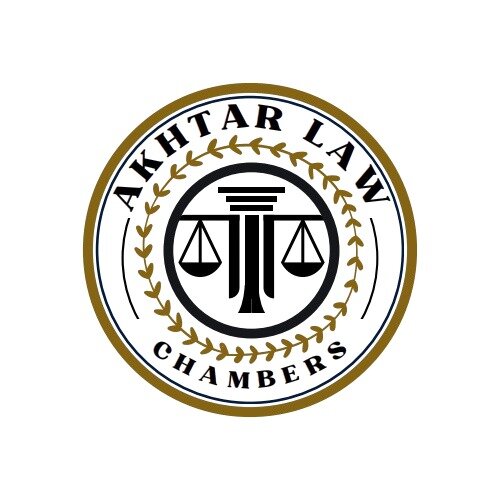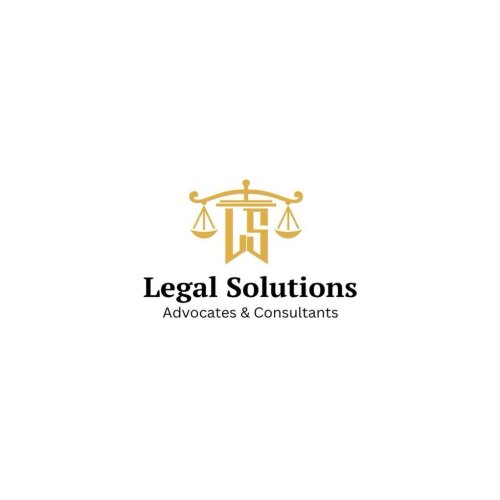Best Media and Entertainment Lawyers in Pakistan
Share your needs with us, get contacted by law firms.
Free. Takes 2 min.
Or refine your search by selecting a city:
List of the best lawyers in Pakistan
About Media and Entertainment Law in Pakistan
Media and entertainment law in Pakistan encompasses a variety of legal fields including intellectual property, contract law, broadcasting regulations, and digital media. This domain has grown significantly due to the rapid expansion of digital platforms, broadcasting networks, and the film and music industries. Media and entertainment law addresses issues related to the creation, distribution, and protection of content, ensuring compliance with local regulations and protecting the rights of content creators and consumers.
Why You May Need a Lawyer
There are several situations where you might need legal assistance in the media and entertainment sector in Pakistan. Some common scenarios include:
- Negotiating contracts and agreements for film, television, music, or other media productions.
- Protecting intellectual property rights such as copyrights, trademarks, and patents.
- Resolving disputes related to content ownership and distribution.
- Ensuring compliance with broadcasting and telecommunications regulations.
- Addressing issues related to defamation, privacy, and freedom of expression.
- Guidance on censorship laws and content approval processes.
Local Laws Overview
Several laws and regulatory frameworks are particularly relevant to the media and entertainment industry in Pakistan:
- Copyright Ordinance, 1962: Governs the protection of literary, musical, and artistic works, ensuring creators' rights are preserved.
- Pakistan Electronic Media Regulatory Authority (PEMRA) Ordinance, 2002: Regulates the establishment and functioning of electronic media in Pakistan, including issuing licenses to broadcasting entities.
- Pakistan Telecommunication Act, 1996: Oversees the telecommunication system and service providers, including the regulation of telecommunication services.
- Digital Media Laws: Encompasses regulations concerning internet content, social media, and digital broadcasts, focusing on cybersecurity, data protection, and privacy.
Frequently Asked Questions
What are the main intellectual property protections available in Pakistan?
In Pakistan, intellectual property rights are primarily protected under the Copyrights Ordinance, 1962, the Trademarks Ordinance, 2001, and the Patents Ordinance, 2000.
How can I protect my creative content in Pakistan?
You can protect your content by registering it under the relevant intellectual property laws. It's advisable to consult a lawyer for guidance on the registration process and enforcement of rights.
What steps should I take if my content is used without permission?
Consult a lawyer to determine the best legal course of action. This may include issuing a cease and desist letter or initiating legal proceedings to enforce your rights.
What regulations must broadcasters adhere to in Pakistan?
Broadcasters must adhere to the PEMRA Ordinance, 2002, which includes obtaining licenses, complying with content restrictions, and observing broadcasting standards set by the authority.
Are there content restrictions in Pakistan?
Yes, there are strict content restrictions in Pakistan, particularly regarding content that might be deemed blasphemous, indecent, or threatening to national security. Compliance with censorship laws is critical.
How do censorship laws affect media production?
Censorship laws can impact script content, storyline, and distribution. Legal advice is recommended to navigate these laws and obtain necessary approvals.
What should be included in a media production contract?
Contracts should outline the scope of work, compensation, intellectual property rights, confidentiality clauses, and dispute resolution mechanisms.
Can digital media content be regulated in Pakistan?
Yes, digital content is subject to the Prevention of Electronic Crimes Act, 2016, which provides a framework for cybersecurity and regulating online content.
What legal recourse is available for defamation in the media?
Defamation laws allow individuals to sue for damages for false statements made publicly. It's vital to consult a lawyer to pursue defamation claims appropriately.
How is data protection addressed in the media sector?
Data protection is primarily managed under the Prevention of Electronic Crimes Act, 2016, focusing on unauthorized access and misuse of personal data.
Additional Resources
For those seeking legal advice or resources in the Media and Entertainment sector, the following organizations and bodies may be helpful:
- Pakistan Electronic Media Regulatory Authority (PEMRA): Handles licensing and regulation of radio, television, and cable services.
- Intellectual Property Organization (IPO) Pakistan: Offers resources and guidance on protecting intellectual property rights.
- Pakistan Telecommunications Authority (PTA): Regulates telecommunication systems and offers guidance on digital compliance.
- Law firms specializing in Media and Entertainment: Numerous local firms provide specialized legal services tailored to the media and entertainment industries.
Next Steps
If you require legal assistance in the media and entertainment sector, consider the following steps:
- Identify Your Legal Needs: Determine the specific nature of legal assistance you require (e.g., contract negotiation, intellectual property registration).
- Seek Legal Consultation: Contact a specialized legal professional or law firm to discuss your situation and obtain tailored advice.
- Gather Documentation: Compile all relevant documents, contracts, and correspondences to aid the consultation process.
- Review Legal Options: Work with your lawyer to review potential legal actions and develop a strategy that aligns with your objectives.
- Stay Informed: Keep abreast of evolving regulations and industry practices to ensure ongoing compliance and protection in your media engagements.
Lawzana helps you find the best lawyers and law firms in Pakistan through a curated and pre-screened list of qualified legal professionals. Our platform offers rankings and detailed profiles of attorneys and law firms, allowing you to compare based on practice areas, including Media and Entertainment, experience, and client feedback.
Each profile includes a description of the firm's areas of practice, client reviews, team members and partners, year of establishment, spoken languages, office locations, contact information, social media presence, and any published articles or resources. Most firms on our platform speak English and are experienced in both local and international legal matters.
Get a quote from top-rated law firms in Pakistan — quickly, securely, and without unnecessary hassle.
Disclaimer:
The information provided on this page is for general informational purposes only and does not constitute legal advice. While we strive to ensure the accuracy and relevance of the content, legal information may change over time, and interpretations of the law can vary. You should always consult with a qualified legal professional for advice specific to your situation.
We disclaim all liability for actions taken or not taken based on the content of this page. If you believe any information is incorrect or outdated, please contact us, and we will review and update it where appropriate.
Browse media and entertainment law firms by city in Pakistan
Refine your search by selecting a city.

















